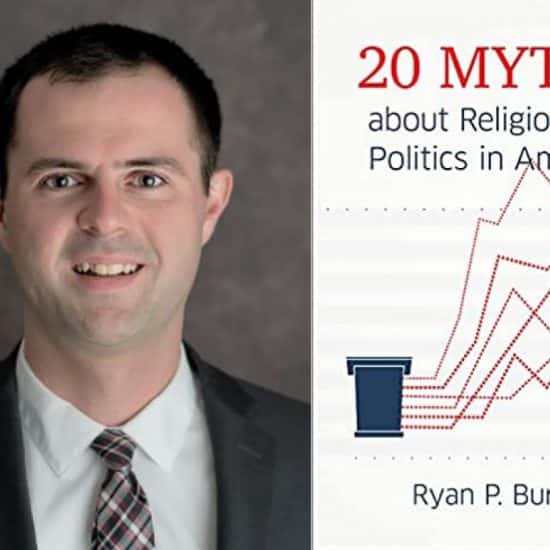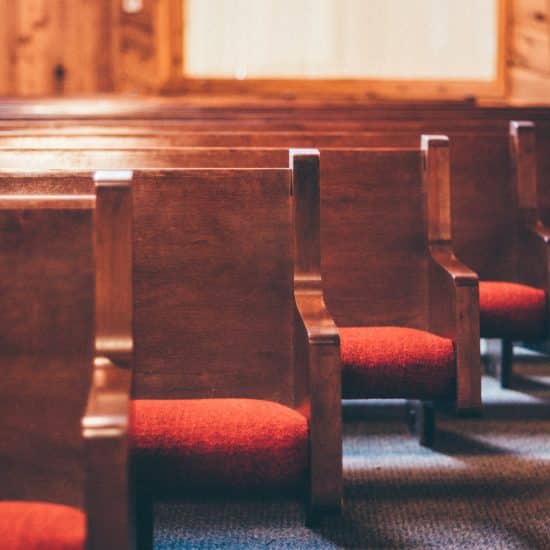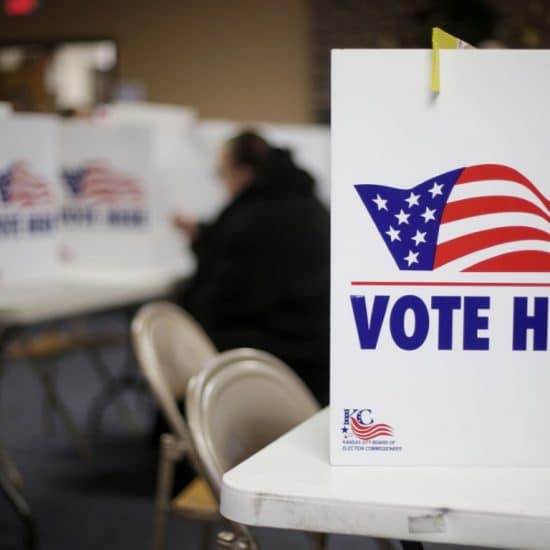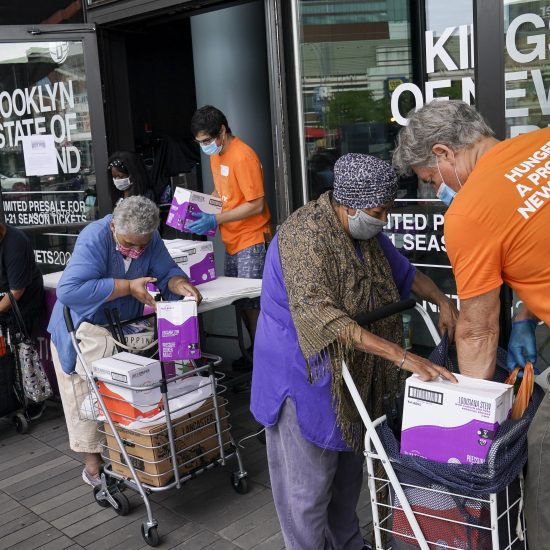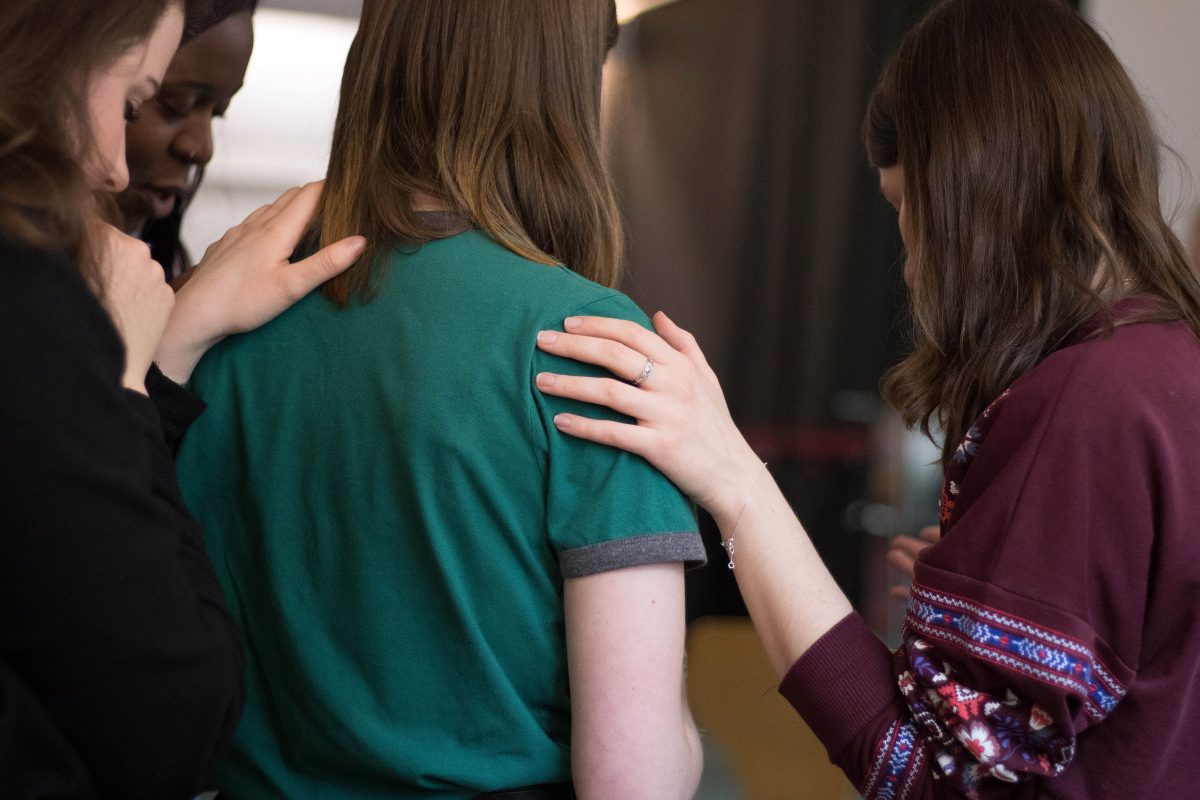
(RNS) — The Bible and other sacred texts are filled with warnings about the importance of putting your trust in the right place.
“Trust in the Lord with all your heart,” the Book of Proverbs advises.
“Do not put your trust in princes, in mortal man who cannot save,” warns another Proverbs verse.
But does faith in God affect your ability to trust other people? And can religion help build trust? Those are the questions a pair of sociologists had in mind while working on a new study exploring the connection between religion and trust, especially at a time when trust, at least in the United States, is on the decline.
Many people think religion can build trust, the study’s authors wrote. But that may not always be the case.
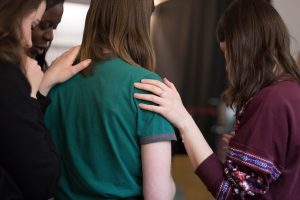
(Rosie Fraser/Unsplash)
Using data from the General Social Survey, Rubia Valente, assistant professor at Baruch College, and Adam Okulicz-Kozaryn of Rutgers University isolated two aspects of religion: individual religiosity, with a focus on prayer and belief in God, versus social religiosity, measured by attendance at services, or membership in a religious group.
They found higher levels of belief predicted less trust, while higher levels of belonging predicted more trust. They also found that those who belong to religious groups or attend services have a lower level of misanthropy, or dislike of other people.
“People that are socially religious — what we classify as belonging — they’re more likely to like people and have a lower misanthropy level,” said Valente.
Valente said the study’s findings reminded her of some of the messages she heard in church while growing up in Brazil, especially about putting your trust in God and not in other people. Often, she said, religious people are seen as trustworthy by others in the broader culture. But that trust doesn’t always extend the other way.
“That doesn’t seem to be the case, at least when it comes to individual religion,” she said.
Valente and Okulicz-Kozaryn used a series of questions from the General Social Survey to measure levels of both trust and misanthropy. To measure, they looked at results for a question that asked, “Generally speaking, would you say that most people can be trusted or that you can’t be too careful in dealing with people?”
To measure misanthropy, the researchers looked at results for the trust question from the GSS along with two others: one that asked if people, in general, are helpful or looking out for themselves and a second that asked whether people, in general, treat others fairly or look out for themselves.
As part of their study, the researchers controlled for factors like race, economic status or marital status, all of which are known to show different levels of trust. For example, white respondents, those with higher income and people who are married often have higher levels of trust, said Valente. They also looked for the “net effect” of each of the two kinds of religiosity — social and individual.
To help explain their results, the researchers used a social theory about “ingroup favoritism” and “outgroup derogation/prejudice.” A circle of trust based on individual religiosity can reduce trust in general because “there is only an adherent and her God in the circle.”
“Social religiosity, on the other hand, explicitly adds other adherents in the circle,” they wrote.
The study is important, said Okulicz-Kozaryn, because trust has been on the decline in American culture. Understanding what factors affect levels of trust is important, he said, and religion seems to play a role in developing or inhibiting trust.
“We’re not saying you should be less religious and that’s going to boost trust,” said Valente. “That’s not it.”
At the same time, she said, religious people should be aware that high levels of belief could lead to a lack of trust, something that seems incongruent with religious teachings about loving your neighbors.
A 2019 Pew Research study found two-thirds (66%) of Americans believe religious and nonreligious people are equally trustworthy. Evangelical Protestants were most likely (40%) to say religious people are more trustworthy than nonreligious people. Atheists (35%) were most likely to say nonreligious people are more trustworthy than religious people.
The 2019 Pew survey also included questions about trust, fairness and helpfulness, similar to those in the General Social Survey. According to previously unpublished data from Pew, those whose religious identity was “nothing in particular” were less likely to say people can be trusted (44%), that people would try to be fair (35%) or that others would help others (31%). Those who identified as part of a historically Black tradition were also less likely to say people can be trusted, are helpful or fair. Jews and Mainline Protestants were more likely to say people can be trusted, are helpful or fair.
Similar to Valente and Okulicz-Kozaryn’s work, the Pew study showed that those who attended worship services weekly or more also were more likely to say people can be trusted, are helpful or fair. Those who seldom or never attend services were less likely.

